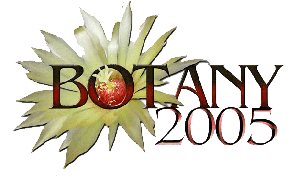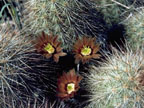Dr.
José Sarukhán
has an undergraduate degree in Biology from the National Autonomous
University of Mexico (UNAM), a Master's
degree in Agricultural Botany from the Agricultural Graduate College
in Mexico, and a Ph.D. in Ecology from the University of Wales,
Great Britain.
He
was elected as Director to the Instituto de Biología
(UNAM (1979-1987). In February 1987, he was appointed Vice
Chancellor for
Science at UNAM, and in December 1988, was elected by the Board
of Governors as Rector (President) of this university for the
period 1989-1993
and reappointed for the same post for the period 1993-1997. UNAM
is higher education institutional complex which produces more
than 50%
of the research in the country, with 22 teaching campuses and an
equal number of research campuses, distributed all over Mexico.
It has an
undergraduate and graduate enrollment of 167,000 students and 28,000
faculty members. In 1988, at the end of its term as Rector, Sarukhán
returned to his post as full-Professor in the Institute of Ecology.
He was invited in 2000 by President Fox of Mexico, to serve as
Commissioner for Human and Social Development at the Executive
Office of the
President, a post that he resigned in March 2002.
José Sarukhán
was president of the Botanical Society of Mexico (1972-1975),
of the Mexican Academy of Sciences (1984-85),
and of the Association for Tropical Biology (1986-1987). He has
been Coordinator of the Mexican National Committee on the Study and
Conservation
of Biodiversity (CONABIO) since 1992. CONABIO has assembled the
most complete data-base on the Biodiversity of Mexico established
a World
Biodiversity Information Network with both Mexican and Foreign
nodal institutions, and has provided basic information to implement
Biodiversity
conservation and management policies in Mexico.
He
was President of the Latin American Union of Universities (UDUAL).
He was Coordinator of the Red Latino Americana de Botánica,
which he helped found in 1987, and is the main South-South scientific
cooperation and training organization in America. He has published
more than 125
papers and 6 books.
His
main areas of interest have been Plant Population Ecology and Systems
Ecology, Biodiversity science, focused especially in Mexico,
as well as the role of training and education in Science in general
and in Ecology in particular in the development of Third World
countries. Currently he is involved in studying the roles of science
in attaining
sustainable development at the global and Mexican scales.
He was Chairman of DIVERSITAS (ICSU/UNESCO) an International Program
on Biodiversity Science, and a Member of the World Commission on the
Ethics of Scientific Knowledge and Technology (COMEST/UNESCO). He chaired
the trinational committee on the effects of transgenic maize in Mexican
maize land races, a study established by the CEC of NAFTA. He is a
foreign member of the U.S. National Academy of Sciences and the Royal
Society of London.



